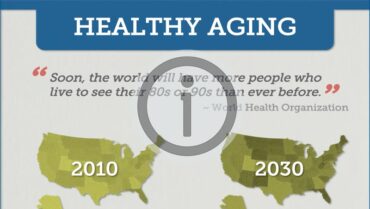Objective planning for life’s major transitions is very difficult for all of us. It is especially hard if you are faced with negative rather than positive changes, when there are more options than you can understand, or when you are asked to assume a new role in the decision-making process.
Unfortunately, all of these conditions may prevail when making choices for senior housing and/or elderly care. “Aging is not for sissies” as the sarcastic Betty Davis quite accurately determined. All the “hard stuff” seems to be saved for those years when we have the fewest resources—health, money, family and friends. Because social and medical landscapes have changed, it is easy to feel baffled when we most need to be decisive. Today’s seniors no longer live, work, and then retire to die in their beds; most of seniors can anticipate at least ten years when they will be dependent on others for daily activities. Finally, quite a number of us will be asked to make decisions for our loved ones that can cause us discomfort: a child for a parent, an able spouse for a partner who is disabled.
Fear, guilt, sadness and other emotions cloud our perceptions when these tough moments surprise us. That is the time when the help of an objective, but empathetic professional is critical. Just as a teacher can weather the vagaries of his young student better than an emotionally involved parent can, so a Geriatric Care Manager is knowledgeable, understanding and more goal-oriented than a distraught family member can be. We can relieve you of the worry that something more could be done. Our services allow you to concentrate on your relationship with your family member, rather than trying to provide social services that are outside your area of expertise and are overly time-consuming and costly.
A Geriatric Care Manager can help by providing:
• Professional Assessments including the evaluation of current conditions, outline of choices of action and recommendations for the future.
• Direct Services which might mean individual and family counseling, determination of financial needs; budgeting; government and insurance forms, and finding alternative senior housing.
• Care Management which covers the careful selection of linkages to community and private resources, coordination of services and monitoring of in-home care and nursing home care.
• Nationwide referrals to other Geriatric Care Managers.
We often find that families have made the wrong choices, and that some of those choices are life changing and irreversible. We would like to suggest that you call a Geriatric Care Manager first. It may be that you will not need our intervention but a simple call can help you make that determination. If you need counseling, many Geriatric Care Managers are licensed by the state of Texas to provide this service and their fees are set by community standards. Our abilities to solve problems related to aging and elderly care are more targeted than that of generalists. For out-of-town or busy professional families, regular visits and a helping hand can keep your family member involved in a satisfactory lifestyle which age and illness may have previously prohibited. Some geriatric care services are even free to the public if you only need guidance to locate a retirement community, care facility or nursing home.
Anne Harbison, M.S., CareFinders, Texas
Constance Kilgore, LMSW, ACP, Constance Kilgore and Associates, DallasTX
For the National Association of Geriatric Care Managers
Related items
Hip Fractures Among Older Adults
Hip fractures are serious fall injuries that often result in long-term functional impairme
Important Care Management Information For Caregivers
Here are good questions to ask your loved one when they are transitioning to a new care si
Healthy Aging
Soon, the world will have more people who live to see their 80s or 90s than ever before. ~






